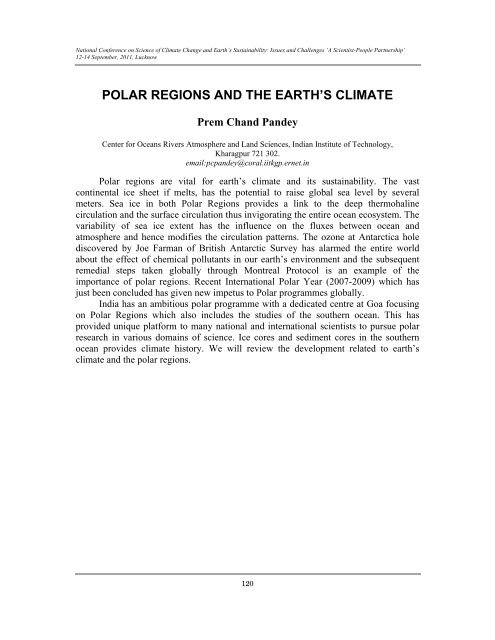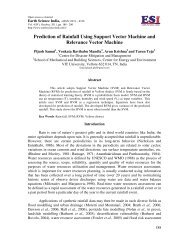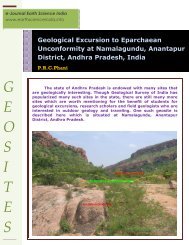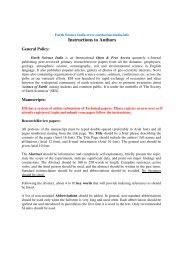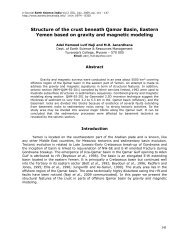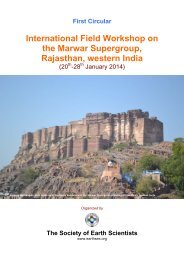12-14 September, 2011, Lucknow - Earth Science India
12-14 September, 2011, Lucknow - Earth Science India
12-14 September, 2011, Lucknow - Earth Science India
You also want an ePaper? Increase the reach of your titles
YUMPU automatically turns print PDFs into web optimized ePapers that Google loves.
National Conference on <strong>Science</strong> of Climate Change and <strong>Earth</strong>’s Sustainability: Issues and Challenges ‘A Scientist-People Partnership’<br />
<strong>12</strong>-<strong>14</strong> <strong>September</strong>, <strong>2011</strong>, <strong>Lucknow</strong><br />
POLAR REGIONS AND THE EARTH’S CLIMATE<br />
Prem Chand Pandey<br />
Center for Oceans Rivers Atmosphere and Land <strong>Science</strong>s, <strong>India</strong>n Institute of Technology,<br />
Kharagpur 721 302.<br />
email:pcpandey@coral.iitkgp.ernet.in<br />
Polar regions are vital for earth’s climate and its sustainability. The vast<br />
continental ice sheet if melts, has the potential to raise global sea level by several<br />
meters. Sea ice in both Polar Regions provides a link to the deep thermohaline<br />
circulation and the surface circulation thus invigorating the entire ocean ecosystem. The<br />
variability of sea ice extent has the influence on the fluxes between ocean and<br />
atmosphere and hence modifies the circulation patterns. The ozone at Antarctica hole<br />
discovered by Joe Farman of British Antarctic Survey has alarmed the entire world<br />
about the effect of chemical pollutants in our earth’s environment and the subsequent<br />
remedial steps taken globally through Montreal Protocol is an example of the<br />
importance of polar regions. Recent International Polar Year (2007-2009) which has<br />
just been concluded has given new impetus to Polar programmes globally.<br />
<strong>India</strong> has an ambitious polar programme with a dedicated centre at Goa focusing<br />
on Polar Regions which also includes the studies of the southern ocean. This has<br />
provided unique platform to many national and international scientists to pursue polar<br />
research in various domains of science. Ice cores and sediment cores in the southern<br />
ocean provides climate history. We will review the development related to earth’s<br />
climate and the polar regions.<br />
<strong>12</strong>0


